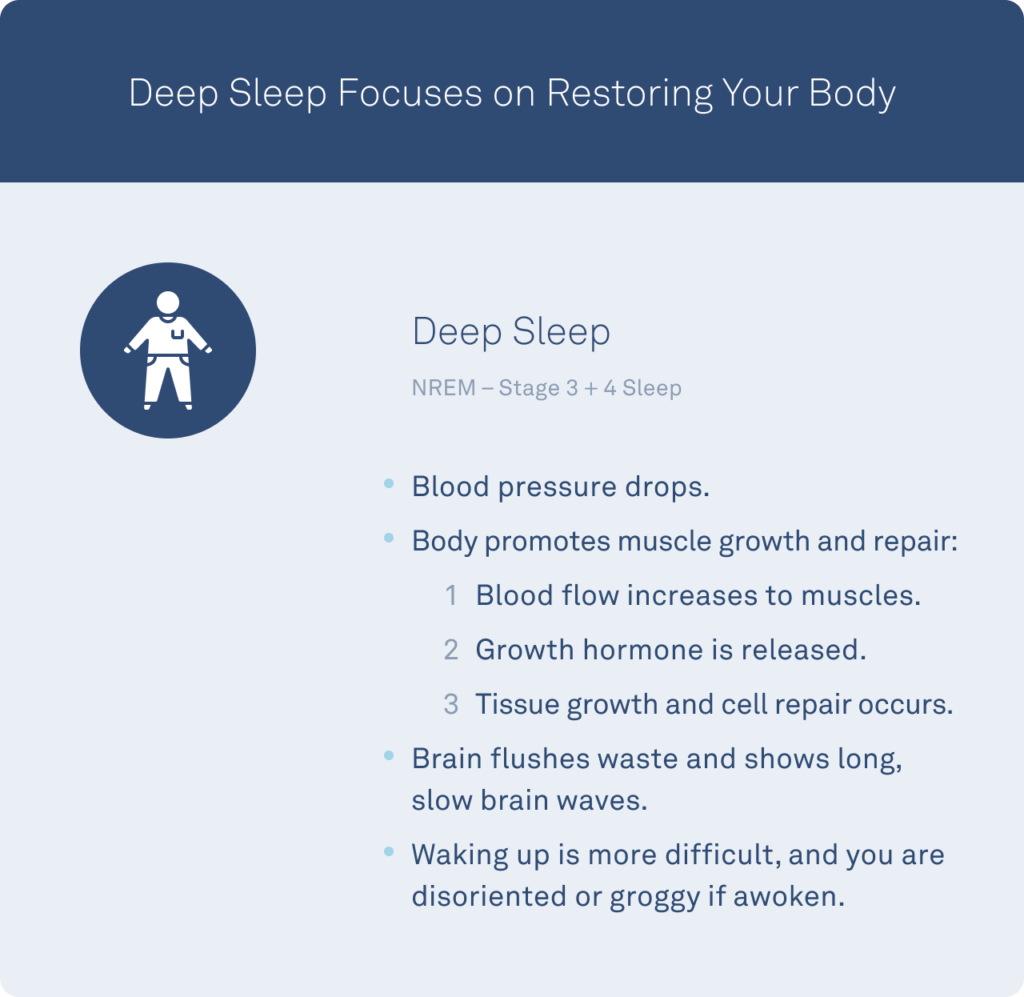Deep sleep, also known as slow-wave sleep, is the most regenerative sleep period for the body. During deep sleep, your body gets busy repairing and rejuvenating various systems, from your brain to your muscles, which happens in the third NREM (non-rapid eye movement) sleep cycle.
To refresh memory, each night, your brain rides a rollercoaster through the various stages of sleep, which is a process that occurs at least four or five times. As such, each sleep stage is crucial for different reasons, but deep sleep is where much of your body’s and mind’s nocturnal magic happens.
Keep reading to discover the benefits of deep sleep, how much you should get, and how to get more.

Benefits of Deep Sleep
- Repair of Muscle, Tissue, and Bone
During deep sleep, your body regenerates and repairs bones, muscles, and regenerative tissues. It also stimulates muscle blood flow, lessening discomfort and exhaustion the following day.
On the other hand, lack of deep sleep reduces muscle mass and is terrible for the health of the bones, according to studies.
- Health metabolite
Inadequate deep sleep may raise the risk of type 2 diabetes, while adequate deep sleep helps maintain normal glucose levels. Additionally, deep sleep boosts growth hormone, which builds muscle mass and insulin sensitivity.
The production of the stress hormone cortisol, which has been related to detrimental health impacts like weight gain and a higher risk of dementia, can be reduced by getting enough deep sleep.
- Energy Production
Your brain replaces its adenosine triphosphate (ATP) stores while you are sleeping deeply. ATP transforms the energy in food and delivers it to your cells. It is the primary energy source for protein synthesis and muscle contractions.
Deep sleep is a preferred stage of sleep for active persons since research shows that it aids in recovery from weariness by mending systems and reviving energy.
- Cleansing of the Brain
For the brain, deep sleep is like bath time. Your brain produces many waste products from the roughly 100 billion neurons that fire throughout the day, including beta-amyloid and tau, two sticky proteins associated with neurodegenerative illnesses like Alzheimer’s.
Cerebrospinal fluid (CSF), pumped up through the brain stem when you’re deep asleep, effectively cleanses your brain by removing hazardous proteins through the glymphatic system.
Conclusion
To summarise, deep sleep is an important stage of sleep that affects our overall well-being and cognitive functioning. Our bodies mend and regenerate during this restorative period while our brains consolidate memories and process emotions.
Prioritizing deep sleep can promote physical health, mental clarity, and emotional balance. So, embrace the value of deep sleep and work to establish an optimal sleep environment for a happier and more meaningful existence.